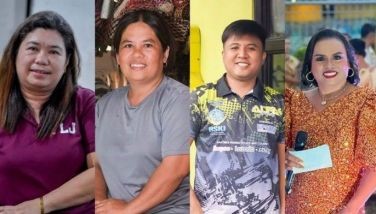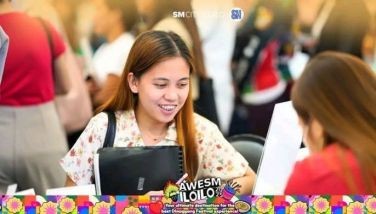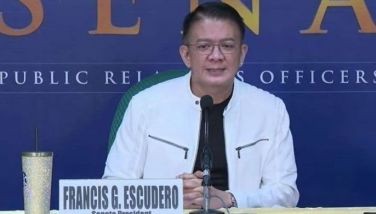Human Toll of POGOs: Prosecutors detail debt bondage, torture, forced labor in Pampanga
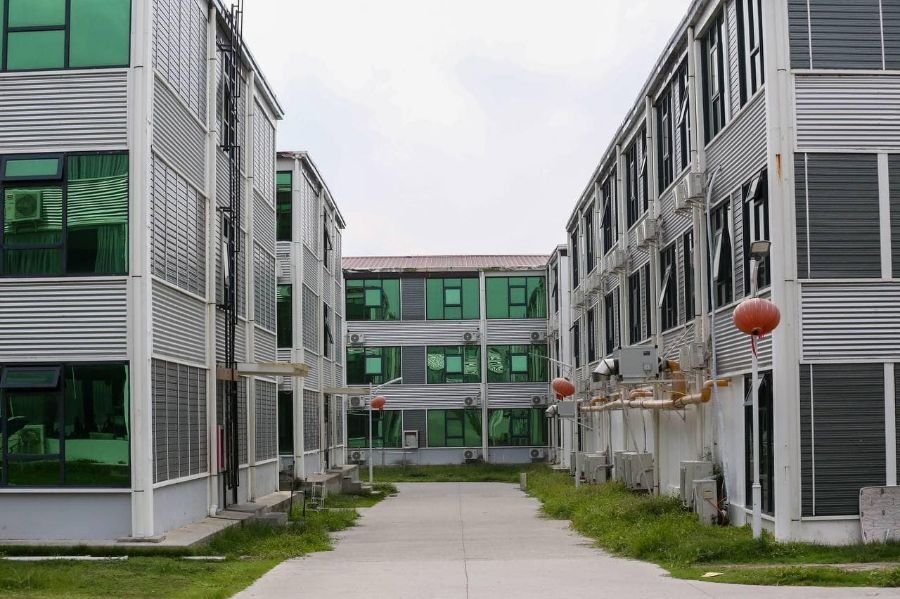
MANILA, Philippines — Online gaming hubs, called POGOs, have long been shadowed by allegations of unlawful activities, with human trafficking emerging as one of the gravest concerns.
On Tuesday, September 10, the Philippine National Police (PNP) and the Presidential Anti-Organized Crime Commission (PAOCC) filed trafficking in persons complaints Cassandra Ong, an incorporator of Whirldwind Corp. and the alleged owner of Lucky South 99. The company is a POGO based in Porac, Pampanga.
Ong, who is accused with 53 others, face charges tied to human trafficking activities months after the June 5 raid of Lucky South 99. The police operation was in response to reports of disturbing incidents within its compound.
During the raid, Special Action Force operators were alerted by cries for help, leading them to a grim discovery—a Chinese POGO worker showing signs of torture.
In a separate room, they found another Chinese man, bruised and handcuffed to a bed frame.
These victims are among the 14 victims now standing as complainants against Ong and her alleged associates. Of the 14, ten are foreigners, while the remaining four are Filipinos.
Cycle of trafficking, forced labor
In an interview with Philstar.com, Escalona said the victims are stuck in a cycle of trafficking as they are sold to other POGOs for forced labor whenever their debts are nearly paid.
"[A victim] incurred a debt of P300,000 to P400,000. He was taken to a POGO to work in order to pay off the debt and was not released until it was fully paid," Escalona said in a mix of English and Filipino.
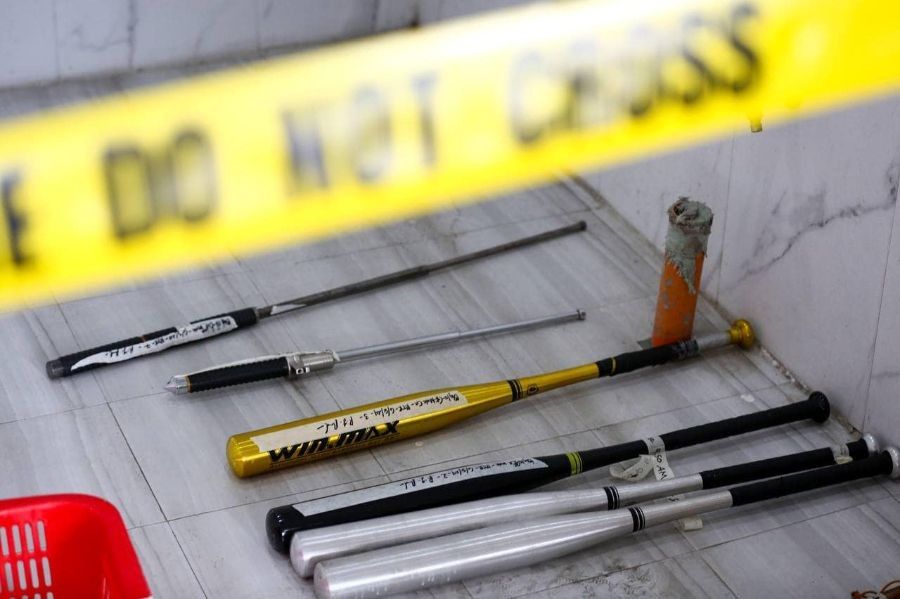
Escalona explained that the victims are bought, and when they are nearing an impasse or close to paying off their remaining balance, they are sold to another POGO.
"So, the victims just keep getting transferred from one place to another," he said.
Some of the indebted workers no longer wanted to work, knowing they're involved in scams. Should they decide not to perform their duties, they are hurt or tortured.
"They're still forced to work as long as they owe a debt to the company," Escalona added.
Philstar.com has reached out to Ong's lawyer, Ferdinand Topacio for a comment about the case, but he has yet to reply.
Why 'trafficking in persons'?
The case filed against the respondents is qualified trafficking in persons, citing Republic Act 11862 also known as the Expanded Anti-Trafficking in Persons Act of 2022.
Section 3 of the law defines trafficking in persons as the following:
(a) Trafficking in Persons — refers to the recruitment, obtaining, hiring, providing, offering, transportation, transfer, maintaining, harboring, or receipt of persons with or without the victim's consent or knowledge, within or across national borders by means of threat, or use of force, or other forms of coercion, abduction, fraud, deception, abuse of power or of position, taking advantage of the vulnerability of the person, or, the giving or receiving of payments or benefits to achieve the consent of a person having control over another person, for the purpose of exploitation which includes at a minimum, the exploitation or the prostitution of others, or the engagement of others for the production or distribution, or both, of materials that depict child sexual abuse or exploitation, or other forms of sexual exploitation, forced labor or services, slavery, servitude, or the removal or sale of organs.
The recruitment, transportation, transfer, harboring, adoption or receipt of a child for the purpose of exploitation or when the adoption is induced by any form of consideration for exploitative purposes, shall also be considered as 'trafficking in persons' even if it does not involve any of the means set forth in the preceding paragraph.
For Escalona, the prosecutor, the case against Ong et. al fit description of crimes mentioned in the law.
“There was illegal detention that lasted for several days... They took advantage of the pandemic during the national disaster… they exploited the situation to traffic our victims. Additionally, it was carried out by a syndicate, with three or more people involved in the trafficking, and it was committed against three victims,” Escalona said.
Kidnapping, debt bondage
Among the alleged atrocities of Lucky South 99, according to the complaint, is kidnapping targeting individuals who could not repay debts, then selling them to POGOs until their debts are cleared.
At a press conference on Tuesday afternoon, Inter-Agency Council Against Trafficking lawyer Ramoncito Ocampo said the syndicate allegedly working for Lucky South 99 preyed on individuals in casinos who cannot pay debt.
“[They are] taken from casinos, loaned money, unable to pay back, and made to work in online gaming,” Ocampo said.
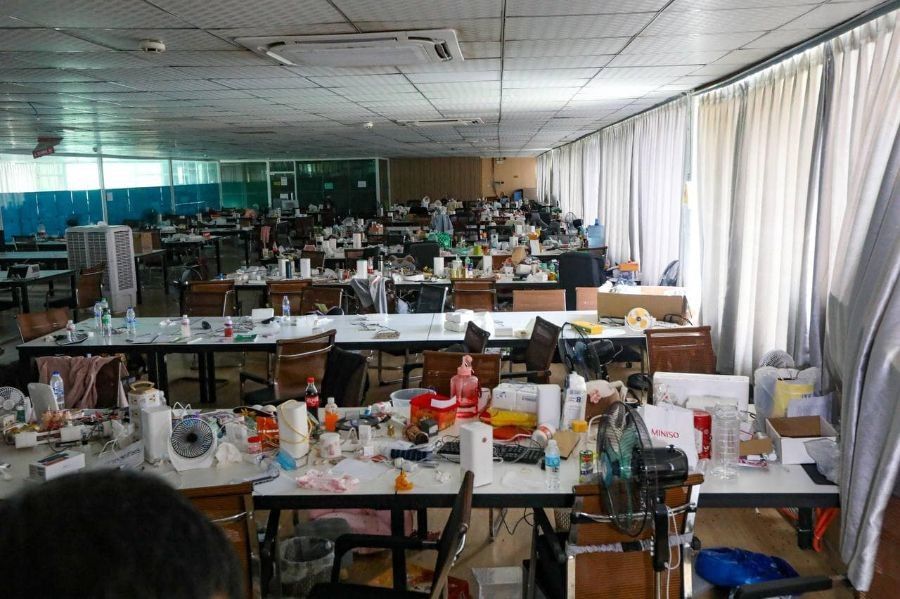
Ocampo also cited a case of a Chinese worker with a P450,000 gambling debt who was sold to Lucky South 99 after losing his loan through mahjong.
The syndicates, moreover, convinced victims to continue borrowing money from the casino with the intent of selling them to the POGOs, said PAOCC spokesperson Winston Casio.
“They were in casinos in Metro Manila, looking for vulnerable individuals and then they would sell them for more than the amount they owed to the POGOs,” Casio said in a mix of English and Filipino.
Section 4 of the law filed against the respondents includes debt bondage or being forced to work to pay off a debt.
- Latest
- Trending













